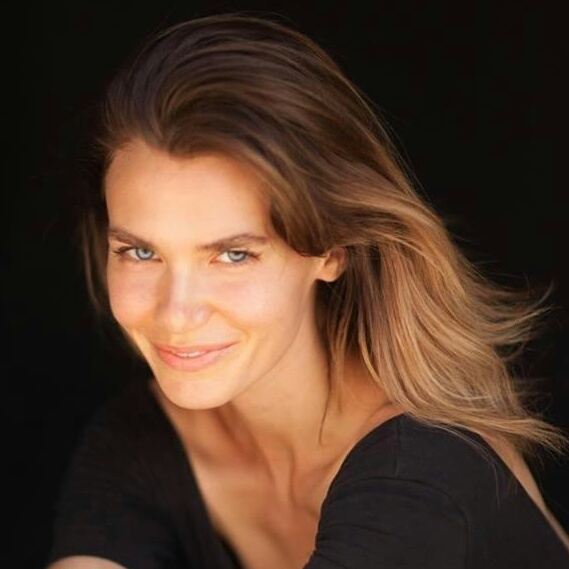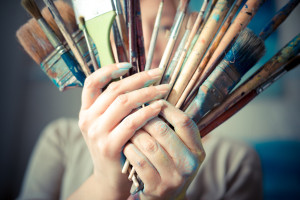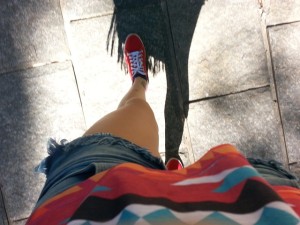- Calls to this hotline are currently being directed to Within Health, Fay or Eating Disorder Solutions
- Representatives are standing by 24/7 to help answer your questions
- All calls are confidential and HIPAA compliant
- There is no obligation or cost to call
- Eating Disorder Hope does not receive any commissions or fees dependent upon which provider you select
- Additional treatment providers are located on our directory or samhsa.gov
Regaining My Mind and My Hair

Contributor: Nikki DuBose, writer for Eating Disorder Hope
As I peer into the mirror on this wintry Saturday morning, I come face to face with one of my oldest demons. My enemy lies dead, void of life, yet I am aware that it has a way of reentering in the darkest corridors of my mind.
We meet again, I hesitate as I reach behind the middle of my head and snap, snap, snap! Section after section I unfasten my extensions to reveal what used to be a sight of horror; my thin, natural hair.
I am determined to confront the sight with a bold spirit, for I believe that this cannot melt me into a neurotic puddle any longer.
Shaggy, light brown tresses barely caress my shoulders, and I exhale a sigh of nostalgic relief. Peace begins to fill my heart for the first time since childhood. My hair.
A Vast History in My Hair
My hair is a vast history book that tells of a life ridden with mental anguish and sadness, but it is one that has a happy ending. My problems with my mind and my hair began when I was around six. Momma spent hours every day drying, teasing, and spraying my hair into designs that could have wound up in the Metropolitan Museum of Art.
As soon as I turned twelve I begged my mother and stepfather to let me dye my hair because I desperately wanted to be anyone, anyone but me. I despised the person I saw when I looked in the mirror. I had big glasses that reached down to my bulbous nose, chunky cheeks and wavy, thick hair with a crown of it bundled at the top.
I was already dealing with binge eating and bulimia for the past four years, and my perception was largely based on a combination of the abusive environment I was raised in and my family’s mental health issues. I, in turn, developed severe mental health issues, and couldn’t pass a mirror without feeling like I wanted to smash my face in it.
The rage inside of me was so severe, that I did engage in self harm on a frequent basis.
Knowing It Was a Problem Without Knowing the Names
 I had no idea at that time what Body Dysmorphic Disorder (1) and Obsessive Compulsive Disorder(2) was, I just knew that my actions were unmanageable and they dominated my life. On top of my eating disorders, the way that I saw myself in the mirror dictated how I behaved on a day-to-day basis.
I had no idea at that time what Body Dysmorphic Disorder (1) and Obsessive Compulsive Disorder(2) was, I just knew that my actions were unmanageable and they dominated my life. On top of my eating disorders, the way that I saw myself in the mirror dictated how I behaved on a day-to-day basis.
Getting Everything “Just Right”
If I thought that I looked alright one day, I would give life a chance. However, if I woke up and couldn’t accept my hair and face the way that it looked on another day, I had to change the color, and then wash it over and over to get it “just right.”
Over the course of my teenage years and early twenties, I colored my hair hundreds of times, and frequently multiple times in a day because I didn’t like the results. I bleached and colored my hair so many times during my early teens that I burned off a portion on my scalp and had to wear a massive comb over style for a year.
Hair – Ruined
I ruined my hair, and if anyone so much as mentioned my hair, I started to scream, cry, and engage in self harming behavior. Regardless of the bald spot I gave myself, I couldn’t stop dying my hair, and I hated the image I saw.
My hair and face was blown out of proportion in my mind, and it affected the way I interacted in society. If I saw myself as ugly, I did not want to see my friends until I felt that I appeared worthy enough to be in their presence.
Tools to Mask Pain and Insecurity
 By the time I started modeling, I used my hair and eating disorders as tools to mask the inner pain and insecurity. A lot of my confidence came from my ability to dive right into my bulimia at any time, so my self-assurance was superficial. However I will never forget the first day that I walked into the office of one of the agencies that represented me.
By the time I started modeling, I used my hair and eating disorders as tools to mask the inner pain and insecurity. A lot of my confidence came from my ability to dive right into my bulimia at any time, so my self-assurance was superficial. However I will never forget the first day that I walked into the office of one of the agencies that represented me.
An agent took one look at me and yelled across the room. “Oh no, this one? You have got to be kidding me. Look at her hair!” She came over and touched my strands as if they were some alien creature. I felt so small, and all of the feelings from my childhood came flooding back.
I wanted to run right out of there, especially as another agency had told me to get a nose and breast surgery the first week that I was in their office. I pondered, Why was I even in this business, if all people wanted to do was change and criticize me?
The industry used insulting tactics to get the highest performance out of me, and it worked, for a while. I allowed myself to be in that type of environment because I was not dealing with my mental health issues and loving myself.
Losing My Hair
When I began to develop anorexia nervosa at the end of 2011, my hair started to slowly fall out. Every time I took a shower, I noticed that a little more would end up in the drain, and soon I had to cut off all of the hair that I had grown out over a few years’ time.
In anorexia, I saw myself as neither female nor male. I felt androgynous at times, and I was disgusted by my hair and face. So often I didn’t even recognize the person that I saw when I looked in the mirror.
I struggled with intense feelings of wanting to shave and rip off all of my hair, and starting my life over. The urges of wanting to wash, color and shave my hair were synonymous with some symptoms of OCD and BDD, but thankfully through the process of recovery I have been able to come to term with those thoughts and learn what is healthy and what is not.
Finding the Co-Existing Conditions
 Beneath the eating disorder there are often co-existing conditions.
Beneath the eating disorder there are often co-existing conditions.
My long-term struggles with my hair have brought to light the other issues that are layered within, and I am grateful that my unique healing journey allows me to face them, not run away in shame.
Body dysmorphic disorder and obsessive compulsive disorder are highly treatable and I can love the person that I see staring back, shaggy hair and all. My hair tells a story, and that is one of a strong woman who has overcome her demons to live a life of victory and beauty.
About the Author:
Nikki DuBose is a former model, host, and actress who has recently turned her career focus towards writing, public speaking, and mental health advocacy. She is a passionate dynamic voice in the mental health field and seeks to encourage others to develop a strong sense of their intrinsic value and self-worth.
Nikki grew up in charming Charleston, South Carolina and currently splits her time between Los Angeles, California and Seattle, Washington. After traveling the globe and working as a fashion model and commercial actress in exciting destinations such as the Middle East, Paris, Barcelona, and London, she was inspired to leave the industry to pursue writing full time.
Her writing is focused on encouraging others to overcome the deadly grip of eating disorders that affect millions. She draws firsthand experience from a long-standing battle with bulimia, anorexia, physical, emotional, and sexual abuse, drug and alcohol addictions, and a wide range of mental health issues.
Her first book is set to be released next year and recounts her life struggles and ultimate triumph over the mental disorders that plagued her for most of her life. She has been published in multiple articles for The National Eating Disorders Association for her hope, strength, and community outreach initiatives.
She continues to write and advocate for NEDA, connect with people around the world through her website, and speak and assist with various other organizations covering various mental health issues, body image, and self-esteem.
The opinions and views of our guest contributors are shared to provide a broad perspective of eating disorders. These are not necessarily the views of Eating Disorder Hope, but an effort to offer discussion of various issues by different concerned individuals.
References:
- http://www.adaa.org/understanding-anxiety/related-illnesses/other-related-conditions/body-dysmorphic-disorder-bdd
- http://www.mayoclinic.org/diseases-conditions/ocd/basics/definition/con-20027827
Last Updated & Reviewed By: Jacquelyn Ekern, MS, LPC on February 21st, 2015
Published on EatingDisorderHope.com

The EatingDisorderHope.com editorial team comprises experienced writers, editors, and medical reviewers specializing in eating disorders, treatment, and mental and behavioral health.

